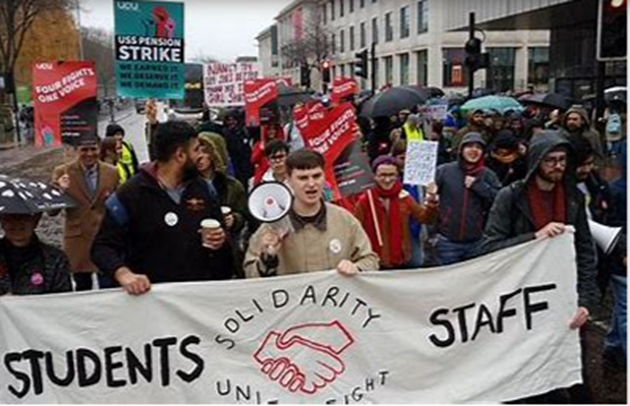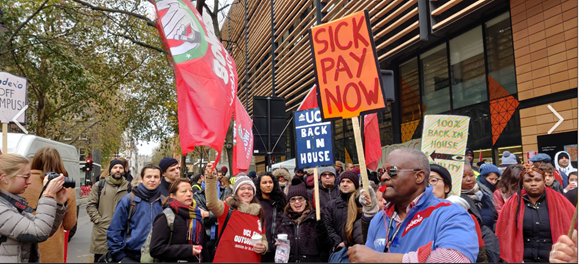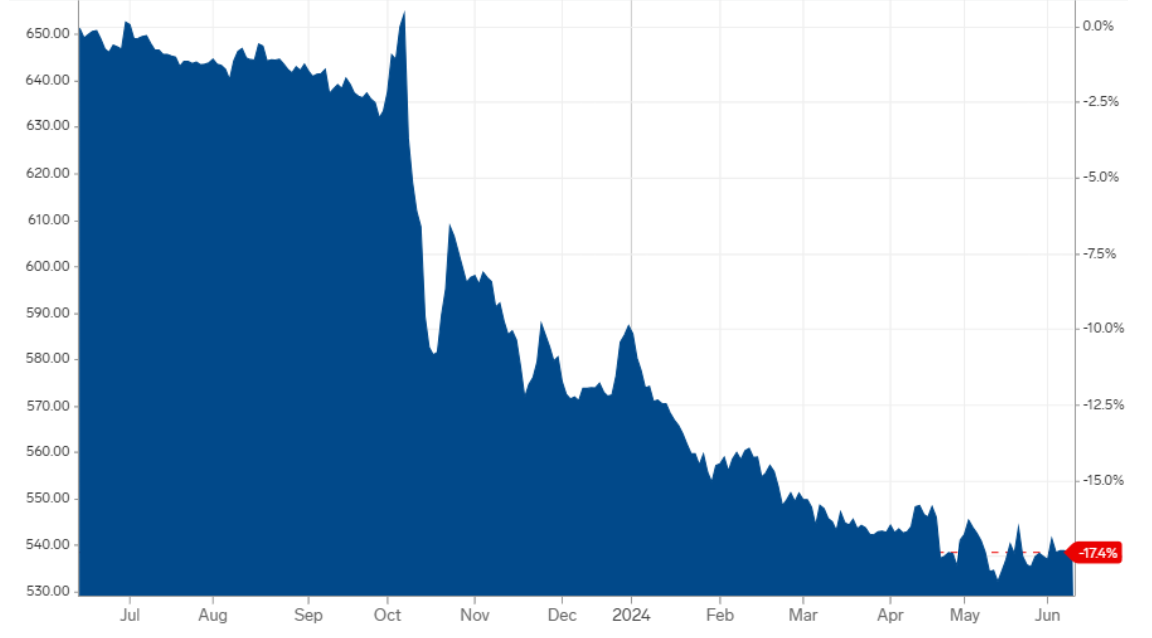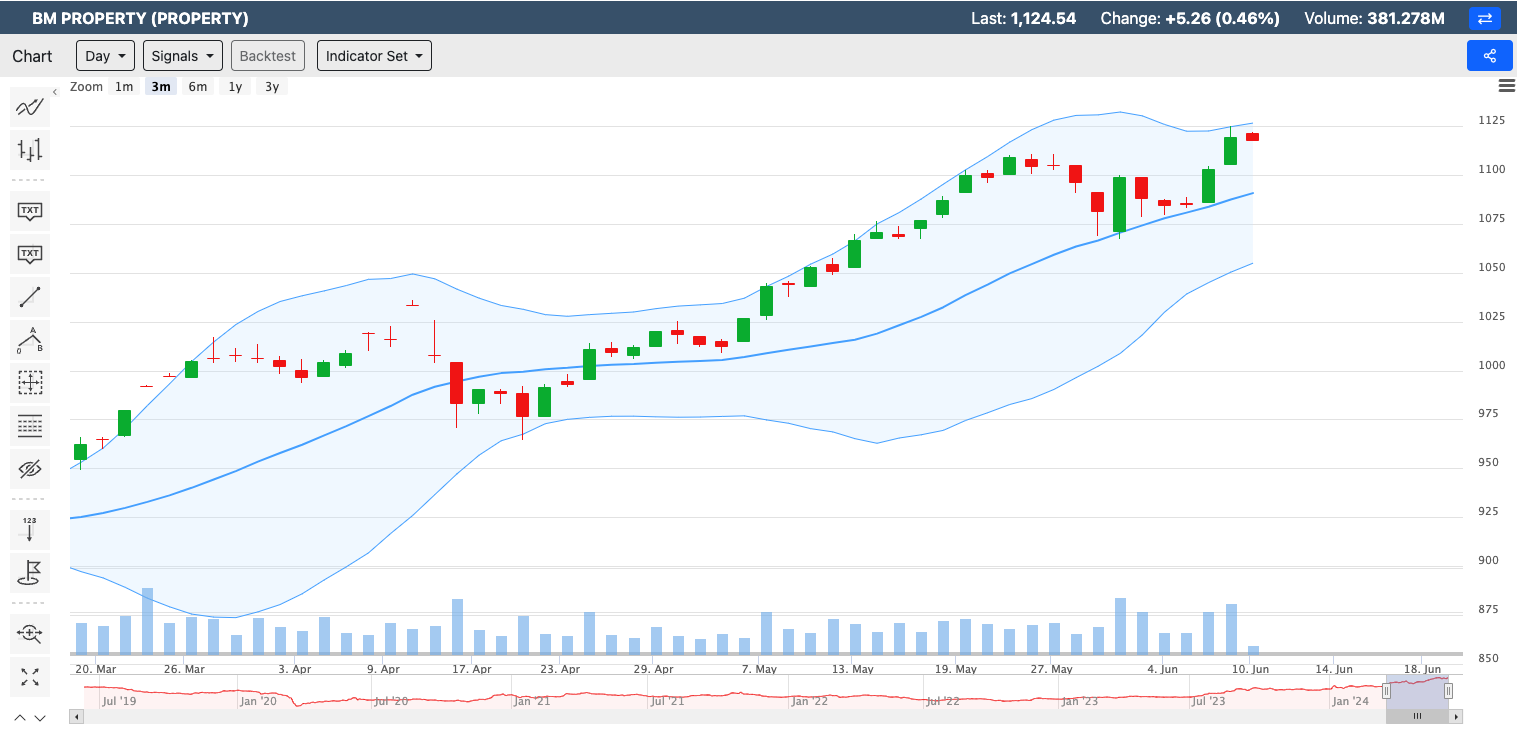Why UK economy suffering more than other EU countries - Koon Yew Yin
Koon Yew Yin
Publish date: Tue, 21 Mar 2023, 09:15 AM
The UK economy is expected to shrink more than expected this year and will be the worst-performing of all the advanced G7 countries, according to the International Monetary Fund.
The IMF’s latest forecast puts the UK languishing behind the US, Germany and even Russia, which has been hit with sanctions and is spending billions of pounds on its illegal war in Ukraine.
Inflation, fueled in part by sky-high energy bills during the war, is having a major impact on economies across the world - including the G7 countries and Europe. Higher prices mean people have less money to spend, which dampens demand in the economy and stifles growth.
The IMF said it believes global inflation has passed its peak and will fall from 8.8 per cent last year to 6.6 per cent in 2023 and 4.3 per cent in 2024 as interest rate hikes by central banks begin to cool demand and slow price rises.
The 12 UK industries that have gone on strike this year 2022 will be remembered as the year of three prime ministers, record-breaking temperatures, the war in Ukraine, and strikes.
Over the last 12 months a number of industries, all with employees dealing with inflation eating away at their paychecks, have taken action in a bid to force employers to improve pay and conditions. Indeed, some 560,000 working days were lost in August and September and industrial actions are mounting in the months ahead.
From rail workers to nurses, a range of workers downed tools this year. Here is 2022 in strikes:
1. Rail workers
Perhaps the most high-profile strikes that took place this year were strikes spearheaded by the RMT union on a number of dates from the summer onwards. RMT boss Mick Lynch became one of 2022's main characters thanks to his blunt communication style and ability to put-down Tory critics with laidback ease. More RMT strikes are planned over the festive period and a separate strike of workers represented by Aslef is also planned.
2. Royal Mail
Postal working for Royal Mail and represented by the Communication Workers Union (CWU) have striked on a number of days since August and have more planned for December. The CEO of Royal Mail even accused posties of trying to ruin Christmas because of the latest round of actions.
3. University staff
The University and College Union (UCU) had strikers from 150 higher education institutions walking out in November. An estimated 70,000 striking researchers, academics and administrators were joined by caterers, cleaners and other support staff from the Unison and Unite unions over pay issues.
4. Nurses
Nurses represented by the Royal College of Nursing will strike next month. Overall, around a quarter of hospitals and community services in England and nearly all those in Northern Ireland and Wales will see nurses walkout on 15th and 20th December and up to 100,000 nurses could get involved.
RCN general secretary Pat Cullen said: "Ministers have declined my offer of formal pay negotiations and instead chosen strike action. "It has left us with no choice. Nursing is standing up for the profession and their patients. "We've had enough of being taken for granted and being unable to provide the care patients deserve."

5. London bus drivers
London bus drivers in the Unite union at two employers, Abellio and Metroline, will strike for three days from Thursday 1 to Saturday 3 December.
Louise Cheeseman, the director of buses at TfL, said: “We apologise for any disruption caused to Londoners, especially for people in west London who may be affected by both sets of strike action. There still will be options for people to travel in the affected areas but other routes may be busier than normal.
“We’re encouraging everyone in these areas to plan ahead, check before they travel and leave more time for their journeys.”
6. Teachers
In Scotland, tens of thousands of teachers striked in November in what was the first nationwide schools strike since the 1980s.
Meanwhile, members of the Scottish Secondary Teachers’ Association and the NASUWT in Scotland also plan to walk out in early December. The National Association of Head Teachers and the National Education Union are also balloting teachers and headteachers in England and Wales, while the members of the former in Northern Ireland are also voting. Meanwhile, school and nursery staff in nine Scottish council areas did strikes over pay in September.
AQA exam board staff also went on strike during the summer.
7. Civil servants
In November, members of the Public and Commercial Services Union union, which represents 150,000 civil servants, voted to take strike action. Staff from the Home Office, Border Force, Department for Transport and Defra are seeking better pay and conditions and they will strike for around a month.
8. Firefighters
The Fire Brigades Union plans to begin balloting members for strike action in December, with a result expected in January. They turned down an offer of a five per cent pay rise that would have represented a real-terms pay cut.
Matt Wrack, the Fire Brigades Union general secretary, said: "This is an historic ballot for firefighters and control staff. We are rarely driven to these lengths. "Nobody wants to be in this position. After years of derisory pay increases and a pay offer that is well below inflation, firefighters' and control staff's living standards are in peril."

9. Refuse workers
A number of groups of refuse workers have striked this year including Coventry workers in January and Edinburgh workers in August. Images of overflowing bins from the action went viral on social media.
10. Barristers
Barristers went on strike on various dates in April, September and October. The Criminal Bar Association (CBA) was in a dispute with the government over pay and Legal Aid cuts.
In October, they accepted a deal of a 15 per cent increase in legal aid fees to “the vast majority of cases currently in the crown court”, £3m of funding for case preparation and £4m for prerecorded cross-examinations of vulnerable victims and witnesses.
They had been lobbying for a 25 per cent increase.
11. Journalists
Some 1,000 journalists employed by Reach and represented by the National Union of Journalists (NUJ) went on strike for one day on 31 August. They turned down a 3 per cent pay rise offer then accepted a revised offer, ending the strike.
12. Hospital workers
Porters, cleaners and catering staff, members of Unite and who work for outsourcing firm Serco at London hospitals St Barts, Royal London and Whipps Cross, striked for two weeks at the beginning of this year.
The union claimed the mainly black and Asian staff are paid up to 15 per cent less than directly-employed NHS workers.
999 call handlers, ambulance technicians, paramedics and ambulance drivers have also voted to strike in December in separate strikes organised by different unions.
"No one in the NHS takes strike action lightly, today shows just how desperate they are," GMB National Secretary Rachel Harrison said.
"This is as much about unsafe staffing levels and patient safety as it is about pay ... Something has to change or the service as we know it will collapse."
Other workers including airline staff and people working at ports also undertook strikes in 2022.
And with the economic crisis showing no sign of abating, we are sure we will see more disruption in 2023 as workers fight for adequate pay.
Bank of England governor
But in recent days, the Bank of England governor, Andrew Bailey, has warned inflation is set to be higher for longer here in the UK, and growth in the economy weaker too.
These gloomy forecasts echoed those made by the International Monetary Fund and the Organisation for Economic Co-operation and Development, which has 38 member countries.
Mr Bailey told a European Central Bank forum that "the UK economy is probably weakening rather earlier and somewhat more than others".
He said: "I think that's been somewhat evident now for a few months." And on inflation he said that as things stand, he would expect more persistence in the headline rate because of the UK's energy price cap system. This suppressed inflation earlier in the year but raised it later on.
Firms warn time is running out to save UK economy
Retailers too have said they have started to expect different outcomes for the UK versus the rest of the Europe. The boss of the owner of Boots, Stefano Pessina, said he suspected the UK "will have a big recession, probably bigger than other European countries".
Last month Pepco, which owns Pound land, said in its results that in the UK customers were scaling back even on essential purchases. Whereas elsewhere in Europe, where wage rises were making up for price rises, this was not the case. Some measures of household consumer confidence are hitting record lows in the UK.
What is driving this? On inflation Mr Bailey pointed to the structure of the price cap affecting the timing of the peaks. But that would affect more the timing of the peak rather than its height.
Sterling has fallen markedly against the dollar over the past year, adding to inflationary pressure for imported fuel and energy. Although the figures are volatile, the key measure of UK trade performance, the current account, reached its worst levels in record in the first quarter.
As the Bank pointed out in its minutes for its June meeting when it raised interest rates, measures of core goods inflation (stripping out volatile measures such as energy and food) in the UK are higher than the US, and markedly higher than the eurozone.
Brexit factor at play
The obvious question posed to Mr Bailey was about a Brexit factor here. Economists predicted that Brexit would make the tradeoff between inflation and growth more difficult, both because of trade barriers and labour shortages.
If forecasts of UK underperformance turn out to be true, then this would be consistent with a Brexit factor at play, making inflation more stubborn than elsewhere, and perhaps requiring interest rates to be hiked higher.
A smaller pool of workers should mean the UK labour market is now less flexible. The British Chambers of Commerce yesterday implored the government to review urgently its shortage occupation list, as hotels and restaurants turned away clients amid staff shortages.
Post-pandemic challenges
Another mechanism identified by policymakers is that within the UK firms see less competition from Europe, and are increasing margins and therefore prices. On the actual numbers so far, as the governor said, it is difficult to be definitive. The post-pandemic supply chain challenges are difficult to disentangle from post Brexit ones, he said.
Also it is far from certain that these forecasts will come to pass. The German economy is very sensitive to any shortage of energy amid tensions with Russia. The Eurozone itself is under internal pressure again, with risks of a re-emergence of the dormant crisis of a decade ago.
So far, a common energy shock, explains most of the inflation we have seen. The structure of the energy price cap may explain why we have spiked now, later than the rest of Europe. But if over the coming year these inflation numbers stay higher for longer here in the UK than the rest of advanced European and world economies, the shadow of post-Brexit policy changes only really affecting this country will loom large.
More articles on Koon Yew Yin's Blog
Created by Koon Yew Yin | Jul 22, 2024
Recently one smart accountant pointed out to me that KP Property has millions of Redeemable Convertible Preference Shares (RCPS). This will affect its share price. I sold all my KPP shares to buy KSL.
Created by Koon Yew Yin | Jul 15, 2024
Currently Bahasa Melayu is taught in all Government sponsored schools. Bahasa Melayu is only good within Malaysia. All our overseas customers do not know Bahasa Melayu. I hope all our politicians...


Created by Koon Yew Yin | Jul 09, 2024
Created by Koon Yew Yin | Jun 28, 2024




Discussions
The Federal Reserve is again raising its key interest rate 0.25 percentage point, to a range between 4.75% and 5%, the highest level for the federal funds rate since 2006.
The banking in Malaysia better don't follow through conveniently anymore. The local households/ borrowers already being burdened with the diminished purchasing power following the higher prices of products and the numerous hikes of interest rates by our BNM. From the softened market, what more money the peoples do have anymore to service the higher cost of borrowing? Madness as shown by these USA policy makers.
2023-03-23 10:00



















beinvested
Roughly a week after the collapse of SVB in America, another bank from Switzerland, namely Credit Suisse went into difficulty/bankruptcy that need the help/bail-outs from UBS which another bank from the same country.
Presumably, the big banks from the West/USA can not be brought down within a short notice that owing to their failures to manage their financial position professional. Unlike the banks in Asia that mostly being managed prudently and monitored by the central banks meticulously.
The economy of USA/West now already entered the stage where they are no longer productive. The people lives on credit terms and the governments are funding their administration by printing money/borrowings. The banks are being exposed to the lending/investment risks that were not seen before. Somehow, their banks and financial system has become the victim of their own doing.
2023-03-21 13:15